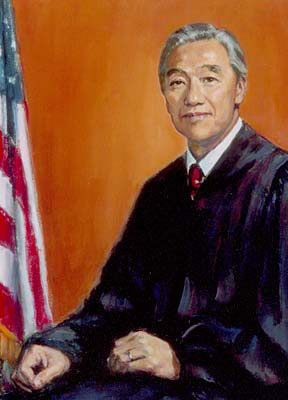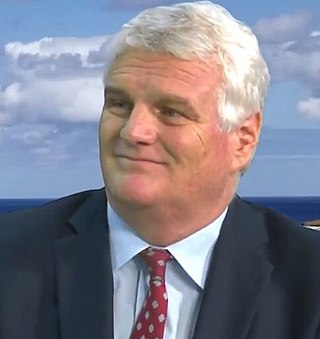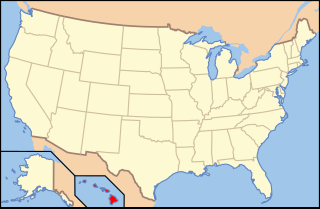Circuit Court (2017-2020)
On February 9,2017,Governor David Ige appointed Eddins to be a Circuit Judge of the First Circuit Court to fill the vacancy left by the retirement of Judge Richard K. Perkins in June 2016. [14] Eddins became a Circuit Judge on April 7,2017. [3] [15] His service on the Circuit Court terminated when he was sworn in as an associate justice of the Hawaiʻi Supreme Court. Known as a workhorse,Eddins presided over 85 jury trials and 21 jury-waived trials during his three years as a Circuit Court judge.
Mark Char. In 2016,Mark Char was found guilty of three counts of attempted murder. [16] The relatively straightforward case turned heads around the country when Char wore blackface to his sentencing in 2019. [16] Char,who is not black,criticized the “kangaroo court”for treating him like a black man,so he decided to “be a black man.” [16] Eddins quickly rebuked Char,“If you look in the mirror,Mr. Char,you’re not gonna see a black person. You’re gonna see a menace. You’re a menace to society.” [16] Eddins sentenced Char to life in prison with the possibility of parole. [16]
Isaiah McCoy. Isaiah McCoy,a death row exoneree,was charged with second-degree robbery in 2019. [17] During a hearing on the State's request to deny bail,Eddins gave Mr. McCoy several warnings after he raised his voice and “made questionable statements.” [17] Mr. McCoy yelled at Eddins,“Dude,make your ruling and I’m going to fight it.” [17] Eddins finally had a deputy sheriff remove Mr. McCoy when he claimed racism. [17] He continued yelling “You’re a racist”as he was dragged out of court. [17]
Hawaiʻi Supreme Court
On September 29,2020,Governor David Ige s office announced Eddins was one of three candidates being considered for appointment to the Hawaii Supreme Court. [18] On October 23,2020,Governor David Ige announced Eddins as his appointment to the Hawaii Supreme Court to fill the vacancy left by the retirement of Richard W. Pollack. [19] On November 19,2020,he was confirmed in the Hawaii Senate by a vote of 25–0. [20] [21] He was sworn in on December 11,2020. [22] [23]
Notable Opinions
Personal Jurisdiction. In Womble Bond Dickinson (US) LLP v. Kim,Eddins’opinion adopted conspiracy jurisdiction into Hawai‘i law. [24] opinion held that Hawaiʻi's courts did not have jurisdiction over certain law firms who represented tobacco companies. Eddins addressed personal jurisdiction in a concurring opinion to City and County of Honolulu v. Sunoco. [25] Eddins noted an effort by U.S. Supreme Court Justice Neil Gorsuch to question personal jurisdiction law on originalist grounds. Eddins observed that “International Shoe still fits”but cautioned that this effort risked major disruptions in settled law. [25]
Gun Rights. Eddins authored a unanimous opinion declaring that article I,section 17 of the Hawaiʻi Constitution creates only a collective,militia-based right to bear arms,not an individual one. [26] Article I,section 17 contains the same language as the Second Amendment to the U.S. Constitution. Eddins’opinion explained why the Hawaiʻi Supreme Court gives the same words a different meaning than the U.S. Supreme Court,criticizing the Supreme Court's decisions in D.C. v. Heller,Chicago v. McDonald,and NY Rifle and Pistol Association v. Bruen. Eddins’opinion did not interpret the Second Amendment or nullify the Supreme Court's interpretation of the Second Amendment. Rather,it decided that Wilson did not have standing to challenge his conviction under the Second Amendment,because he never bothered to apply for a concealed carry license. [26] The opinion sharply criticized the U.S. Supreme Court's misuse and distortion of the text,history,and purpose of the Second Amendment. Eddins wrote that the Second Amendment was intended to preserve State militias,not “someone packing a musket to the wigmaker just in case.” [26] The opinion gained significant media attention for quoting the HBO hit series The Wire to show that the Constitution is not “caged”and that a backward-looking approach to the Constitution is ill-suited to contemporary times. [27] “The thing about the old days,they the old days”Wire character Slim Charles (and Eddins) said. [28]
Climate Change. Hawaiʻi's Constitution,article XI,section 9 provides every person “the right to a clean and healthful environment.” [29] Eddins authored a majority opinion construing this provision to include “the right to a life-sustaining climate system.” [30] Eddins wrote,“the reality is that yesterday's good enough has become today's unacceptable. The [Public Utilities Commission] was under no obligation to evaluate an energy project conceived of in 2012 the same way in 2022. Indeed,doing so would have betrayed its constitutional duty.” [30] This is the first United States decision to declare a stable climate as an affirmative right. [31] Eddins has also written that the Hawaiʻi Public Utilities Commission must consider the state's use of fossil fuels and greenhouse gas emissions when it carries out its responsibility to safeguard public trust resources. [32]
Originalism. Eddins has been an outspoken critic of originalism and the conservative majority on the U.S. Supreme Court. [25] He has criticized originalism for chaining itself strictly to the past. [26] His opinions have observed that when the Constitution was ratified,women,minorities,and non-property owners did not share the same legal rights or political participation as the white,male,property owners who drafted the Constitution. [26] In his Sunoco concurrence,Eddins wrote,“Originalism revives their value judgments. To constrain the value judgments of contemporary judges!” [25] At his confirmation hearing before the Hawaiʻi State Senate,Eddins called originalism “a silly way to interpret the law.” [33] His opinions have criticized originalists on the U.S. Supreme Court for cherry-picking history and getting the facts wrong to advance preferred policy preferences. [34] He has chided the Supreme Court for its hypocrisy and selective application of originalism. [25] Eddins has also called the Supreme Court out on its claim that originalism constrains judges’personal views. In Sunoco,he wrote that “enduring law is imperiled. Emerging law is stunted. A justice’s personal values and ideas about the very old days suddenly control the lives of present and future generations.” [25]
Insurer's Duty to Defend. Eddins has opined on an insurance company's duty to defend a policyholder under Hawaiʻi law. In St. Paul Fire &Marine Insurance Co. v. Bodell Construction Co.,Eddins wrote that Hawaiʻi law has a broad duty to defend,so an insurer can't try to recoup its defense costs from a policyholder unless the insurance policy contains an express reimbursement provision. [35]
Access to Public Records. Eddins’opinions have addressed access to public records for journalists and state agencies. The State of Hawaii Office of the Auditor sought records from the state Office of Hawaiian Affairs (OHA),which OHA claimed were protected by its attorney-client privilege. [36] The Hawai‘i Supreme Court ruled that privilege protected the records. [36] In another case,investigative journalists from Honolulu Civil Beat sued the Hawaii Attorney General for access to the AG's report investigating abuse in the state auditor's office. [37] Eddins,writing for the majority,held that the Attorney General must disclose most of the report with some redactions. [37]
Hawaiian Homelands Settlement. The 1920 Hawaiian Homes Commission Act created a land trust to provide homesteads to Native Hawaiians. [38] Due to poor administration of the trust,thousands of Native Hawaiians waited decades but never received homestead leases. [38] In 2022,the State of Hawaii settled decades-long litigation with Native Hawaiian trust beneficiaries. [38] The State agreed to pay $328 million,once all litigation over the settlement ended. [38] Self-represented plaintiff Rickey Rivera asked the Hawaiʻi Supreme Court to review his claim that he was eligible to receive a payout from the settlement. [38] His claim had the potential to delay payout of the settlement for months,if not years. [38] Eddins,writing for the court,expeditiously resolved Rivera's appeal,allowing payouts to reach the settlement beneficiaries. [38]
Plavix Litigation. Eddins’opinion vacated an $834 million penalty that a Hawaiʻi circuit court imposed on Bristol Myers Squibb and Sonofi,makers of the anti-platelet drug Plavix. [39] The State of Hawaiʻi had sued the companies,arguing that they concealed the fact that the drug didn't work as well in people with certain liver enzymes. [39] Eddins reasoned that circuit court prematurely granted summary judgment on whether Plavix's label mattered to consumers and sent the case back for a new trial. [39]










